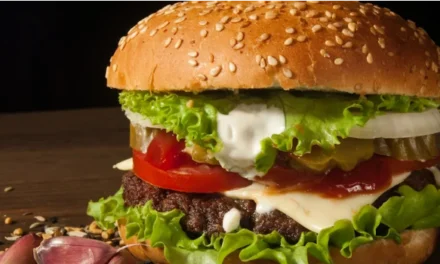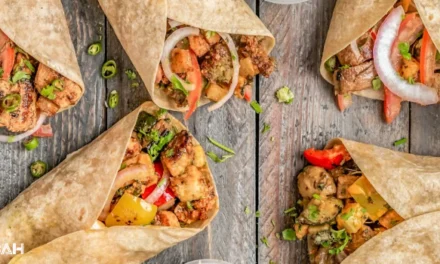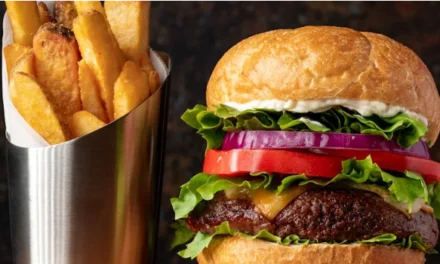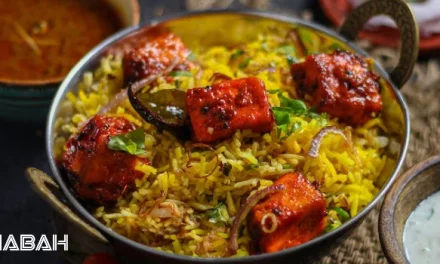Wagamama reigns as an iconic restaurant chain throughout the United Kingdom. Since first launching in London’s Bloomsbury district in 1992, this lively Asian food purveyor has captured the hearts and tastebuds of countless Brits.
Signature dishes like chicken katsu curry, teriyaki ramen and pad thai are many people’s go-to comfort meals. Their menu celebrates vibrant pan-Asian flavors melding Chinese, Japanese, Thai and Vietnamese infleunces under one roof.
But is this beloved eatery actually permissible for Muslims to enjoy? Can devoted followers of Islam partake in Wagamama without compromising their religious dietary integrity?
These questions swirl around Wagamama’s halal status. For observant Muslims, the answer can impact where they choose to dine. Understanding if a restaurant properly caters to an Islamic diet is an important consideration nowadays when eating out.
So let’s closely examine: does Wagamama qualify under halal guidelines?
Defining Halal Food Standards in Islam
To assess any dining spot’s compliance with Muslim traditions, we must first outline what designates something as ‘halal’.
Halal is an Arabic word meaning “permissible”. When it comes to food, halal refers to dishes that align with Islamic dietary guidelines as stated in the Quran.
Several criteria create the foundations of halal eating:
Permissible Meat Sources
- Beef, lamb, goat, fish and most poultry can be halal.
- Pork and any pork-based products are labelled haram (impermissible). Alcohol is also haram.
- Permitted meats must derive from slaughter following Muslim rituals such as reciting prayers over the animal.
Avoidance of Contamination
- Utensils, surfaces and hands used to prepare halal foods cannot then touch haram items. This avoids cross-transfer of substances Muslims cannot ingest.
Healthy & Ethical Sourcing
- Standards of hygiene and freshness must be upheld in food handling and storage.
- No contamination or adulteration can taint halal menu components along production chains.
- Ethical treatment of animals pre-slaughter is also emphasized.
With these halal must-haves covered, certification bodies can audit restaurants and manufacturers to guarantee Islamic traditions are fully satisfied.
Wagamama’s Stance on Halal Certification
The first key question around Wagamama and halal feasibility is: does this famous UK restaurant chain carry official halal certification?
Based on public statements and customer queries, the answer is no – Wagamama remains without halal accreditation to date. Their kitchens actively handle alcohol and pork ingredients across meals not labelled vegetarian.
However, this doesn’t automatically render all menu items off-limits for Muslim patrons. In a 2017 tweet, Wagamama’s UK team explained:
“We aren’t halal certified but we do try our best to cater for all diets and have vegan, vegetarian and dietary specific dishes”
So while not conforming to certification standards, they openly acknowledge catering to varying religious needs.
Their drive to expand dietary choice suggests Wagamama tries adapting to support follower of Islam. Yet without robust oversight, this well-meaning flexibility doesn’t equal full halal compliance.
How Muslim Diners Evaluate Wagamama’s Halal Friendliness
Wagamama’s candidacy around meeting Islamic tradition ultimately hinges on each person’s interpretation. With influences like culinary culture in one’s homeland, some Muslims strictly mandate certified halal eateries only. Devout communities like Saudi Arabia forbid any casual dining flexibility.
For this reason, exact appraisals of Wagamama’s ‘halalness’ vary across individuals. Views sit along a spectrum from:
1. Wagamama as “Haram” Due to Alcohol & Pork Presence
Some automatically label Wagamama entirely impermissible. These diners point to the actuality of contamination since alcohol and pork appear routinely in their kitchens.
Without physical separation of halal and haram ingredients, cross-contact seems inevitable even in supposedly ‘safe’ dishes. So pork particles could transfer to utensils or surfaces handling halal foods, however careful kitchen staff aim to be.
Abiding by a “better safe than sorry principle”, Wagamama contains too much risk of accidental ingestion of haram elements. Especially when other UK chains like Chicken Cottage achieve full halal certification through strict operational adjustments.
2. Wagamama as “Mostly Halal” Based on Menu Content
Less orthodox Muslims often happily deem Wagamama effectively ‘halal enough’. These patrons focus on the abundance of menu items absent alcohol or pork.
Ranging across noodle, rice, curry and stir-fry dishes, they perceive plentiful choice far exceeding what is available at more rigid chains.
The fact Vegetarian Society accreditation requires completely meat/dairy-free preparation also offers assurance. Without cross-over between equipment used for vegan dishes and haram foods behind-the-scenes, contamination seems preventable.
3. Wagamama as “Conditional Halal” with Special Requests
Somewhere inbetween lies a balanced view requiring certain steps before eating Wagamama meals. Known as ‘conditional halal’, patrons agree selecting menu items aligned with halal guidelines is feasible AFTER:
- Inquiring about food prep in detail
- Customizing to avoid cross-contamination
- Having offending ingredients excluded from dishes
Adherents argue conditional halal dining, while not completely risk-free, allows Muslim adherence without total social isolation.
What’s Actually On the Menu?
Beyond simply branding their overall halal status, a detailed overview what Wagamama serves bolsters opinions either way.
Below summations illuminate how their menu can largely suit Islamic guidelines:
Meat & Seafood
Though uncertified, many Wagamama meat and fish dishes likely uphold tenets:
- Chicken and duck feature heavily, avoiding pork taboos
- Beef in some dishes may derive from properly slaughtered cows
- Seafood selections appear guaranteed halal
Specifically, patrons report chicken katsu curry and grilled duck donburi as go-to halal options.
Their signature Firecracker Prawns and spicy Chilli Squid also have no known haram ingredients.
Noodles & Rice
Ramen enthusiasts appreciate customization possibility with tonkotsu and vegetable broth bases. This allows chicken or veggie ramen creations meeting halal principles.
Likewise, udon and rice pairs suit Islamic preferences, avoided noodle dishes with pork stocks.
Curry Dishes
Wagamama’s famed katsu curry seems widely accepted as within halal boundaries. Their chicken katsu variant substitutes white fish typically used.
They also boast 23 types of vegan curry, utilizing coconut milk and vegetables instead of dairy.
Vegetarian & Vegan Mains
Finally, an abundance of meatless plates make Wagamama a budget-friendly halal haven:
- Yasai Itame
- Vegatsu
- Pad Thai
- Bang Bang Cauliflower
These omit alcohol and pork traces through vegan preparation standards.
So if selecting wisely, Muslim diners can still experience Wagamama’s buzzing ambience without dietary sacrifices.
Conclusion
In summary, Wagamama in the UK cannot claim fully halal status given the current absence of certification. Their kitchens likely enable cross-contact between haram and halal ingredients from time to time.
However, with careful navigation of menu choices and customization where possible, Muslim patrons can largely appreciate Wagamama without breaching their faith.
By outlining information openly around ingredients and food prep policies, Wagamama empowers followers of Islam to make informed dining decisions. Their pledge to accommodate varying religious needs shows dedication to Muslim accessibility – even if imperfect.
So rather than definitively branding Wagamama absolutely halal or haram, a moderate ‘conditional halal’ designation seems fairest. Their diversity of flavour profile and efforts to cater to Islamic diets makes dining possible with care and wisdom around personal boundaries.
In the future, perhaps market pressures and social change could motivate them to undertake full halal certification one day soon. But for now, they move positively towards Muslim patron integration – with room for progress ahead.
So followers of Islam searching for an engaging restaurant encounter can find refuge with caution at this high street hero. Bid a temporary farewell to curries, noodles and tempuras lovingly crafted to appeal across all of Britain’s eclectic palates – without excluding halal observers along the way.
Frequently Asked Questions – Is Wagamama Halal?
Wagamama is not halal-certified. It is important for Muslims to consider this when choosing to dine at the restaurant.
Can Muslims eat at Wagamama?
While Wagamama offers vegetarian options and Japanese specialties, it is not considered halal. Muslims should take this into account when deciding whether it is safe for them to eat there.
Is the firecracker sauce at Wagamama halal?
The status of Wagamama’s firecracker sauce being halal is not confirmed. It’s important for those who follow halal dietary guidelines to check with the restaurant about specific ingredients or certifications.
What should Muslims consider when dining at Wagamama?
Muslims should be aware that Wagamama is not a halal restaurant and it does not have a halal certification. It is important for them to exercise caution and make informed decisions about their food choices.
Does Wagamama have a halal menu?
Wagamama does not have a specific halal menu. While it offers a variety of options, including vegetarian dishes, there is no official confirmation that the restaurant is halal-certified.
Is Wagamama planning to become halal-certified in 2023?
There is no information available about Wagamama aiming to obtain halal certification in 2023. It’s recommended to check the official sources for any updates on their halal status.
Can I find prawn firecracker at Wagamama?
Wagamama offers a range of dishes, including prawn firecracker. However, it’s important to note that the restaurant is not considered halal, so Muslims should make their dining choices accordingly.
Does Wagamama offer vegan options?
Yes, Wagamama does offer vegan options on their menus. However, it’s essential for those looking for halal-certified meals to verify the ingredients and kitchen practices before consuming any dishes at the restaurant.
Is wagamama safe for Muslims to eat at?
Wagamama is not certified as halal. While it provides a variety of cuisines, including vegetarian options, Muslims should exercise caution and consider their dietary requirements when dining at Wagamama.
Does Wagamama have any halal-certified items?
Wagamama does not currently have any items that are halal-certified. It’s essential to confirm the status of specific dishes or ingredients with the restaurant before consuming them, especially for those adhering to halal guidelines.





